EVERYBODY LOOK WHAT´S GOING DOWN and what´s going on
EVERYBODY LOOK WHAT´S GOING DOWN
echoes Norman Warwick
Perhaps because of the musical genres from which they emerged, I was far more aware of, and so preferred, Buffalo Springfield´s For What It´s Worth than Marvin Gaye´s What´s Going On. That may still be true today, actually, though I grow ever more entranced by Gaye´s wonderfully delivery.

For What It’s Worth is one of the most widely known protest songs of the 1960s. Recorded by Buffalo Springfield as a single, it was eventually released in 1967 on their self-titled album.
Buffalo Springfield was the house band for LA’s famous Whiskey A Go Go during the time of the riots, which led Stephen Stills to pen the song.
Much has been written about the song; one of the best sources of information is Reason to Rock.

In the book Neil Young: Long May You Run: The Illustrated History, Stephen Stills tells the story of this song’s origin: ´I had something kicking around in my head. I wanted to write something about the kids that were on the line over in Southeast Asia that didn’t have anything to do with the device of this mission, which was unravelling before our eyes. Then we came down to Sunset from my place on Topanga with a guy – I can’t remember his name – and there’s a funeral for a bar, one of the favourite spots for high school and UCLA kids to go and dance and listen to music.
[Officials] decided to call out the riot police because there’s three thousand kids sort of standing out in the street; there’s no looting, there’s no nothing. It’s everybody having a hang to close this bar. A whole company of LAPD in full Macedonian battle array in shields and helmets and all that, and they’re lined up across the street, and I just went ‘Whoa! Why are they doing this?’ There was no reason for it. I went back to Topanga, and that other song turned into ‘For What It’s Worth,’ and it took as long to write as it took me to settle on the changes and write the lyrics down. It all came as a piece, and it took about fifteen minutes.´
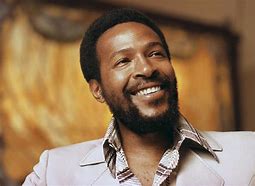
Geoffrey Himes reminded us, in his column for NT V N D publication for Paste on-line magazine on 16th December, that is now fifty years since Marvin Gaye recorded the song What’s Going On? in June and July of 1970, though it took six months of wrangling with the conservative leadership of Motown Records to get it released as a single the following January. When it finally emerged, it resonated with an America unsettled by war, pollution and racism, an America hungry for the spiritual uplift and social action that the Black church promised—and that a new generation gave a new immediacy.
In fact it became a retrospective of a scenario Buffalo Springfield had made three years previously.
As a result, this song’s blend of what Himes calls gospel tradition and soul-jazz experimentation´´ topped the R&B charts for five weeks and rose to #2 on the pop charts. When people do those lists of the “100 Best Songs of All Time,” this single is usually in there.
Himes description of the production values of the song had me yearning to listen to it again, from this new-to-me perspective.
´It opens with the sounds of a party getting started as old friends greet each other until Eli Fontaine’s soprano sax solo ushers in the song itself. Gaye’s tenor is simultaneously relaxed and immense, as if his confidential purr had been expanded to fill an airplane hangar. It’s the voice of a preacher presiding over the funeral for a young soldier who died in Vietnam: ´Mother, mother, there’s too many of you crying,´ he sympathizes. “Brother, brother, brother, there’s far too many of you dying.´
Over the rippling rhythm of the great Motown bassist James Jamerson, finger snaps and Gaye’s own slapping on a cajon (box drum), the singer articulates the question on every mind in the congregation: ´What’s going on?´ Now it’s half a century later, and America is more unsettled than ever, still waiting for an adequate answer to that question. What could be more relevant today than Gaye’s plea, ´Picket lines and picket signs, don’t punish me with brutality´?
Today’s generation of songwriters seem sure they have the answer to Gaye’s question, but they are usually too glib and facile to have much credibility. If the solutions were as obvious as hip-hop slogans, rock ’n’ roll hooks and pop-diva platitudes seem to suggest—or as their often predictable music promises—our problems would have been resolved by now.
Gaye, however, never fell into that trap; he offered no easy answers whilst identifying the issues, portraying the conflicting sides and capturing the urgency of the struggle. He addressed those issues not only in his lyrics but also in the jazzy, expansive music that provided plenty of room for reflection. (a point my colleague Steve Bewick always makes about the abilities of jazz music to open debate).
That, say Geoffrey Himes, is why Gaye´s song—and the album of the same name—has outlived the specific events of his day to apply to every era, even ours.
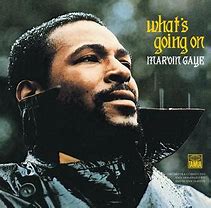
In suggesting that, Himes reminds us that the best of songs make universal the persona or specific, whether bemoaning a broken heart or in mourning for a whole world gone mad.
Gaye was a master of what Himes considers to be the secret of soul-music singing: the ability to sound vulnerable and dignified in the same moment.
´It’s not easy to project weakness and strength simultaneously—and most vocalists emphasize one or the other. But artists such as Gaye, Sam Cooke, Aretha Franklin, Dionne Warwick, Smokey Robinson and Luther Vandross resolved this paradox by acting as if revealing one’s hurt and doubt required an act of courage that one could be proud of.´
They were right, of course, but whilst this combination can be discussed in dry academic terms like these, it is not easy to project it in song. A master singer must become, also a master actor. The R&B blend of pain and poise is harder to find in today´s multi-threaded fused music than it was once in the categorised soul releases but Himes reassures us it is still out there if we search for it.
So where are the Marvin Gayes and What’s Going On? s of our day? You won’t find them at the top of the charts, but you can still discover them at the margins of the music industry. This year, for example, has seen smart, probing albums full of gospel and soul roots, full of hurt and pride, and Himes names John Legend, Gregory Porter, Aloe Blacc, Bettye LaVette and Shemekia Copeland as being among the deliverers and genres notwithstanding I would add Dylan and his Murder Most Foul Track to that list.
In fact surely many of these artists, like Gaye himself, and certainly Buffalo Springfield were treading in the footsteps Dylan made when he re-traced Woody Guthrie´s sidetracks & detours through depressions and oppressions.
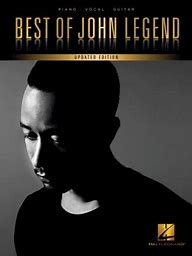
Of those five probing albums that Himes alludes to, however, only Legend’s reached the top 40 of Billboard’s U.S. pop or R&B album charts (at #19 and #13) and none has thus far yielded a top-40 single on either chart. Yet, despite their limited sales, these recordings speak to the current moment in a special way. They draw both street-wisdom and church sermons to offer challenges and consolations, anguished vocals over rousing piano chords and questions without easy answers.
Himes has previously, and passionately, discussed Porter’s terrific album, All Rise, and now claims that Legend’s latest album, Bigger Love, reminds us of his immense debt to Gaye. The relaxed vocals, the hangar-sized reverb, tasteful strings, finger snaps, gospel piano and rippling polyrhythms are clear echoes.
Legend has spoken out on social issues on previous recordings—most notably his 2010 collaboration with the Roots, Wake Up! Himes makes the excellent point, though, that this one is focused on romance—more like Gaye’s underrated In Our Lifetimealbum than What’s Going On. This is not an album of new love but of long-term love—it’s not about how to ignite a fire but how to keep the embers glowing. It’s not that one kind of song is better than the other, but both experiences deserve musical exploration, and pop music gives us more than enough new-love songs and not nearly enough old-love songs.
´Legend is a limited lyricist with a weakness for schmaltzy platitudes, but he’s a terrific singer and composer, able to create instrumental and vocal arrangement that evoke the complicated feelings of an on-going relationship that the words merely hint at. One reason Legend can do this is that he draws from the entire history of soul music—expertly recreating his quotes and bending them to his own purposes.
The album begins with the Shoo-ba-be-lop intro of the Flamingos’ immortal 1959 single, I Only Have Eyes for You, Remember Us nods to Al Green, while Focused and U Move, I Move nod to Prince. And everything seems to echo Gaye.´
Geoffrey Himes so often writes paragraphs like the one above, and I find myself selecting albums in my collection that I can listen to again to see what I missed first time around. I often change my opinion and evaluation of an artist and his repertoire based on being made to re-think it all by Himes but personal taste is harder to shift. I find myself admiring so much of the music Himes writes about but that doesn´t necessarily force any of it into my list of all-time greats, because my heart is set somewhere along the sidetracks & detours off the LA Freeway that Guy Clark took and in the California Bloodlines of John Stewart and in the mountains where its Snowing On Raton.
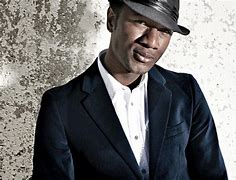
What would Legend sound like, asks Himes, if he were a better lyricist? He’d probably resemble Aloe Blacc on the latter’s new album, All Love Everything. When Blacc sings about Family for example, on the disc’s first track, he finds vivid images to describe himself as both a child (Still got this scar here on my knee/ From chasing trouble with the big kids on my street) and as a parent (I read my little ones to sleep/ Put my face right next to theirs to feel them breathe).
That origin story is the foundation for a collection of songs about the struggle of a young man and his home boys from a poor neighbourhood trying to make their way in a world stacked against them. ´I remember the days when we had none/ Trying to fight through the waves,´ he sings in Gaye-like tones on Glory Days over a Babyface-like acoustic guitar and a push-and-pull beat. But when the horns come in, he declares, ´Welcome to the glory days.´
On the song Harvard he sings, ´I ain’t got no big degree/ Everything I know/ I learned it on these bitter streets.´ When he borrows the title My Way from Frank Sinatra and Paul Anka, he shifts the perspective from the penthouse to the basement apartment.
Over an infectious, gospel-soul snap-along, he declares, ´I’ve been suffering at a job/ In a world that tries to own me,´ but insists, ´I’m going to do it my way.´ If this were 1970, Blacc would be a huge star. In 2020, he’s buried treasure waiting to be dug up by the inquisitive.

If Blacc’s social commentary is couched in the terms of the marginalized narrator fighting his way into a successful life, Bettye LaVette’s (right) observations are framed by the struggles of women to hold their own in lopsided relationships.
Although the veteran soul singer didn’t write any of the songs on her new album, Blackbirds, she organized the project around songs associated with African-American female singers. The title comes from the Beatles song, Blackbird, which Paul McCartney wrote as a salute to such singers. The album’s other eight songs were recorded by Lil Green, Dinah Washington, Della Reese and the like.
Billie Holiday’s classic Strange Fruit is the most explicitly political track. This 1939 protest against lynching—and by implication against all racist violence—was a weary lament on Holiday’s recording.
(watch out for our five day jazz feature in Sidetracks & Detours early in the New Year with its special section on Billie Holiday.)
In LaVette’s slow-blues arrangement, it becomes a furious indictment—her dark alto stabbing as sharply as Smokey Hormel’s guitar fills and Leon Pendarvis’s piano chords.
The politics are more implicit on the other songs. The album opens with I Hold No Grudge, which Nina Simone recorded in 1967. On the surface it’s addressed to a cheating man who asks for forgiveness, but it could just as easily be aimed at any employer or institution who treated her wrong. No matter who’s on the receiving end, the message is double edged: I’ll forgive you this time, but I’ll never forget how you did me and don’t even think about doing it again.
When LaVette sings, ´A woman who’s been forgotten may forgive, but never, never forget,´ the instruments drop out so she can stretch out the two “nevers” in a scratchy wail that would give any adversary pause.
She delivers the same message with the same throat-twisting threat to the same class of betrayers on Book of Lies, a Ruth Brown B-side from 1958. LaVette celebrates her ultimate triumph over every obstacle by transforming the McCartney title track from a third-person observation into a first-person confession. The Beatle used a lilting, happy-go-lucky tune to encourage the blackbird to ´take these broken wings and learn to fly.´ LaVette slows the song down to explain the painful process of how ´I took my broken wings and learned how to fly. All my life, I have waited for this moment to arrive.´
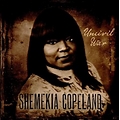
Like LaVette, leans on the blues half of rhythm & blues even as she marries that sound to edgy Americana song-writing. The opening track on Copeland’s new album, Uncivil War, finds Americana star Jason Isbell adding hair-raising blues guitar to Clotilda’s on Fire. The song tells the story of the last slave ship to arrive in the United States, arriving in Mobile Bay in 1959, 50 years after importing slaves was outlawed, only to have the captain burn his ship to destroy the evidence.

When Himes then informs us that the song was co-written by Copeland’s manager John Hahn and her producer Will Kimbrough, I realise that every musical genre takes its own sidetracks & detours off its main highways. Will Kimbrough is an artist I have always thought of as ´Americana´, and yet here he is, in the midst of music I consider to be way beyond where even my musical journeys take me. I first heard his name when it fell out in a conversation with a well-established Americana musician during an interview. I had never heard of him but that incidental recommendation sent me scurrying away to find the artist´s and there I found a diamond in a garbage can, which happened to be the title of Will´s self-composed track, that was the best song even on This, an album that carried at least two other wonderful songs in Chimayo and Goodnight Moon.
An AllMusic Review by Travis Drageset says ´the album opens with the majestic, Matthew Sweet-circa-100% Fun song, Closer To The Ground. But the album’s tone changes throughout, making for a varied, eclectic ride. The airy Chimayo comes with shadings of Burt Bacharach, breezy harmonies, and muted trumpets. The sad and slow Down in My Mind is a cloistered bit of countrified sentiment, all wrapped up in sparse, bluesy guitar licks. And Diamond in a Garbage Can — with lines like ´she’s the rotten apple of her daddy’s eye,´ and “leaning up against the pawnshop door/I could see she wasn’t an ordinary whore,´´ and ´she’s too sad to be so young” — is a mid-tempo ramble in the vein of the progressive roots music of the mid-’70s. Goodnight Moon ends the set. It’s a lullaby-like ode to leaving home with lilting tuba, euphonium, and alto sax by David Jacques. Will Kimbrough‘s guitar work — which can also be heard on albums by Kim Richey, Matthew Ryan, Josh Rouse, Amy Rigby, and Jess Klein — is seamless, and his vocals, which lie somewhere between those of Neil Finn and Gram Parsons, are sweet and warm.
Will Kimbrough has spent a lifetime writing songs and performing them, along the way becoming a respected recording artist, producer and musician. Will recently launched a Patreon page and is putting energy into new songs and getting music out to the Patreon Patrons.
His latest album is I Like It Down Here and his next release is Spring Break, a solo acoustic record in the tradition of Folkways and Vanguard folk records.
Will’s songs have been recorded by Jimmy Buffett, Little Feat, Todd Snider, Jack Ingram, Gretchen Peters and many others.
His production credits include Buffett, Doug Seegers, Todd Snider, Radney Foster and Steve Poltz.
Will is a prolific writer and recording artist, a member of Willie Sugarcapps, DADDY and Emmylou Harris’ Red Dirt Boys.
John Hahn and Kimbrough´s other contributions to Copeland´s Uncivil Wars are the Staples-like Civil Rights anthem Walk Until I Ride; the anti-one-percent blues-rocker Money Makes You Ugly; the gun-control anthem Apple Pie and a .45; and the string-band title song, which acknowledges how the conflicts of the 19th century Civil War still haunt us today. Other songs are taken from the Rolling Stones, Junior Parker and the singer’s late father Johnny Copeland. Guests include Jerry Douglas, Sam Bush, Duane Eddy, Webb Wilder, Kingfish and Steve Cropper.
Though her daddy was a Texas bluesman, Shemekia grew up in Harlem as a funk and hip-hop fan. Her immense soprano and genealogy got her a record contract in the blues world at 18. But she didn’t break away from the usual blues formulas till 2015 when she started blending blues vocals with Americana song-writing, leading to arrangements that split the difference. That year’s Outskirts of Lovesignalled the new direction; 2018’s America’s Childwas her masterpiece, and this year’s Uncivil Waris her political manifesto. Though her opinions are strong, she never comes off as preachy, thanks to the welcome doses of humour and funk.´
That, says Himes, was Marvin Gaye’s lesson for all of us. America’s problems can’t be ignored, but neither can they be simplified into bumper stickers or tweets. They need to be acknowledged in all their enduring complexity and must be confronted with as much feeling as thought, as much hope as anger and as much dignity as pain. ´You know we’ve got to find a way,´ Gaye sang 50 years ago, ´to bring some understanding here today.´




Leave a Reply
Want to join the discussion?Feel free to contribute!